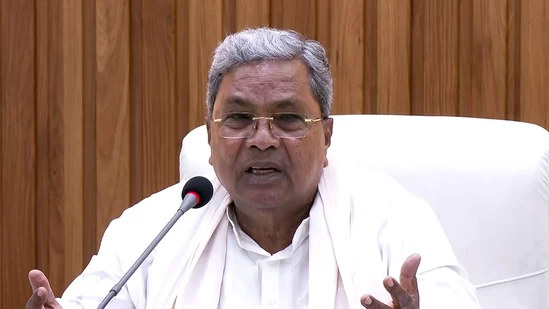Latest Updates
Centre Issues Notice to OTT Platforms, Emphasizes Strict Adherence to Code of Ethics Following 'Obscene' Remarks by ‘BeerBiceps’

The Ministry of Information and Broadcasting on Thursday issued a stern notification urging OTT platforms to strictly adhere to the Code of Ethics under the Information Technology (Intermediary Guidelines and Digital Media Ethics Code) Rules, 2021. The move follows a growing controversy involving podcaster and influencer Ranveer Allahbadia, whose "obscene" comments during an episode of the stand-up comedy show ‘India's Got Latent’ sparked widespread backlash.
The notification comes on the heels of a strong rebuke from the Supreme Court, which had questioned the Centre about steps to regulate "obscene" content online, particularly in light of Allahbadia's remarks regarding parents and sex. The court's sharp questioning during a hearing this week highlighted the increasing concerns over the spread of inappropriate material on social media and digital platforms.
Government's Warning on 'Obscene' Content
In its notification, the Information and Broadcasting Ministry noted that complaints had been received about the dissemination of "obscene, pornographic, and vulgar content" by certain OTT platforms and social media channels. This was specifically flagged in reference to recent content published by platforms and influencers, with particular focus on Allahbadia's controversial statements.
The Ministry emphasised that the law requires OTT platforms to ensure they do not transmit content that is prohibited by law and must classify content according to age appropriateness. "The Rules provide that self-regulatory bodies of OTT platforms shall oversee and ensure alignment and adherence to the Code of Ethics," the notification stated. It also stressed the importance of restricting access to adult content, urging platforms to implement stringent "access control for 'A' rated content" to prevent children from accessing material unsuitable for their age. "Further, the Rules provide that self-regulatory bodies of OTT platforms shall oversee and ensure alignment and adherence by the OTT platforms to the Code of Ethics," the notification said. "In view of the above it is advised OTT platforms adhere to various provisions of applicable laws, and Code of Ethics prescribed under IT Rules, 2021 while publishing content on platforms, including stricter adherence of age-based classification of content prescribed under Code of Ethics," the notification further added.
The notification from the Ministry also emphasised the need for OTT platforms to engage in self-regulation to prevent the spread of inappropriate content. Platforms are urged to establish and maintain robust self-regulatory mechanisms, ensuring compliance with the laws and guidelines laid out in the IT Rules, 2021.
The Centre’s move comes at a time when online platforms, especially those hosting content created by independent creators, have come under increasing scrutiny for content that many consider to be objectionable or harmful to audiences, particularly minors.
Supreme Court's Response and the Push for Regulation
This notification follows a significant intervention by the Supreme Court, which had recently criticized Allahbadia, who is also known as the ‘BeerBiceps guy’ on Instagram. The court, which had been hearing a plea by Allahbadia to merge the two police cases filed against him, condemned his comments made during the stand-up show. The bench, comprising Justice Surya Kant and Justice N Kotiswar Singh, highlighted concerns over online platforms becoming breeding grounds for such "misuse" and indecent content.
The court remarked, "Union of India is a party... We would like to do something. Government of India will willingly do it, we will be very happy. Otherwise, we are not going to leave this vacuum. The way it is being misused by so-called YouTube channels... we have issued notice..." The court also inquired about the Centre's plans to regulate online content, particularly with respect to maintaining decency standards.









